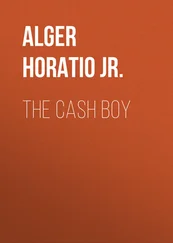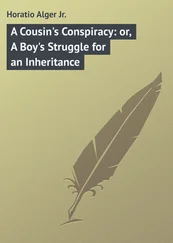Horatio Alger - The Errand Boy; Or, How Phil Brent Won Success
Здесь есть возможность читать онлайн «Horatio Alger - The Errand Boy; Or, How Phil Brent Won Success» — ознакомительный отрывок электронной книги совершенно бесплатно, а после прочтения отрывка купить полную версию. В некоторых случаях можно слушать аудио, скачать через торрент в формате fb2 и присутствует краткое содержание. Жанр: foreign_children, literature_19, foreign_antique, foreign_prose, на английском языке. Описание произведения, (предисловие) а так же отзывы посетителей доступны на портале библиотеки ЛибКат.
- Название:The Errand Boy; Or, How Phil Brent Won Success
- Автор:
- Жанр:
- Год:неизвестен
- ISBN:нет данных
- Рейтинг книги:4 / 5. Голосов: 1
-
Избранное:Добавить в избранное
- Отзывы:
-
Ваша оценка:
- 80
- 1
- 2
- 3
- 4
- 5
The Errand Boy; Or, How Phil Brent Won Success: краткое содержание, описание и аннотация
Предлагаем к чтению аннотацию, описание, краткое содержание или предисловие (зависит от того, что написал сам автор книги «The Errand Boy; Or, How Phil Brent Won Success»). Если вы не нашли необходимую информацию о книге — напишите в комментариях, мы постараемся отыскать её.
The Errand Boy; Or, How Phil Brent Won Success — читать онлайн ознакомительный отрывок
Ниже представлен текст книги, разбитый по страницам. Система сохранения места последней прочитанной страницы, позволяет с удобством читать онлайн бесплатно книгу «The Errand Boy; Or, How Phil Brent Won Success», без необходимости каждый раз заново искать на чём Вы остановились. Поставьте закладку, и сможете в любой момент перейти на страницу, на которой закончили чтение.
Интервал:
Закладка:
“He need never know of this,” said Mrs. Brent to herself in a low tone. “I will save it for Jonas.”
She held the paper a moment, as if undecided whether to destroy it, but finally put it carefully back in the secret hiding-place from which she had taken it.
“He is leaving home of his own accord,” she whispered. “Henceforth he will probably keep away. That suits me well, but no one can say I drove him to it.”
CHAPTER IV
MR. LIONEL LAKE
Six months before it might have cost Philip a pang to leave home. Then his father was living, and from him the boy had never received aught but kindness. Even his step-mother, though she secretly disliked him, did not venture to show it, and secure in the affections of his supposed father, he did not trouble himself as to whether Mrs. Brent liked him or not. As for Jonas, he was cautioned by his mother not to get himself into trouble by treating Phil badly, and the boy, who knew on which side his interests lay, faithfully obeyed. It was only after the death of Mr. Brent that both Jonas and his mother changed their course, and thought it safe to snub Philip.
Planktown was seventy-five miles distant from New York, and the fare was two dollars and a quarter.
This was rather a large sum to pay, considering Phil’s scanty fund, but he wished to get to the great city as soon as possible, and he decided that it would be actually cheaper to ride than to walk, considering that he would have to buy his meals on the way.
He took his seat in the cars, placing a valise full of underclothes on the seat next him. The train was not very full, and the seat beside him did not appear to be required.
Mile after mile they sped on the way, and Phil looked from the window with interest at the towns through which they passed. There are very few boys of his age—sixteen—who do not like to travel in the cars. Limited as were his means, and uncertain as were his prospects, Phil felt not only cheerful, but actually buoyant, as every minute took him farther away from Planktown, and so nearer the city where he hoped to make a living at the outset, and perhaps his fortune in the end.
Presently—perhaps half way on—a young man, rather stylishly dressed, came into the car. It was not at a station, and therefore it seemed clear that he came from another car.
He halted when he reached the seat which Phil occupied.
Our hero, observing that his glance rested on his valise, politely removed it, saying:
“Would you like to sit down here, sir?”
“Yes, thank you,” answered the young man, and sank into the seat beside Phil.
“Sorry to inconvenience you,” he said, with a glance at the bag.
“Oh, not at all,” returned Phil. “I only put the valise on the seat till it was wanted by some passenger.”
“You are more considerate than some passengers,” observed the young man. “In the next car is a woman, an elderly party, who is taking up three extra seats to accommodate her bags and boxes.”
“That seems rather selfish,” remarked Phil.
“Selfish! I should say so. I paused a minute at her seat as I passed along, and she was terribly afraid I wanted to sit down. She didn’t offer to move anything, though, as you have. I stopped long enough to make her feel uncomfortable, and then passed on. I don’t think I have fared any the worse for doing so. I would rather sit beside you than her.”
“Am I to consider that a compliment?” asked Phil, smiling.
“Well, yes, if you choose. Not that it is saying much to call you more agreeable company than the old party alluded to. Are you going to New York?”
“Yes, sir.”
“Live there?”
“I expect to live there.”
“Brought up in the country, perhaps?”
“Yes, in Planktown.”
“Oh, Planktown! I’ve heard it’s a nice place, but never visited it. Got any folks?”
Phil hesitated. In the light of the revelation that had been made to him by Mrs. Brent, he did not know how to answer. However, there was no call to answer definitely.
“Not many,” he said.
“Goin’ to school in New York?”
“No.”
“To college, perhaps. I’ve got a cousin in Columbia College.”
“I wish I knew enough to go to college,” said Phil; “but I only know a little Latin, and no Greek at all.”
“Well, I never cared much about Latin or Greek, myself. I presume you are thinking about a business position?”
“Yes, I shall try to get a place.”
“You may find a little time necessary to find one. However, you are, no doubt, able to pay your board for awhile.”
“For a short time,” said Phil.
“Well, I may be able to help you to a place. I know a good many prominent business men.”
“I should be grateful to you for any help of that kind,” said Phil, deciding that he was in luck to meet with such a friend.
“Don’t mention it. I have had to struggle myself—in earlier days—though at present I am well fixed. What is your name?”
“Philip Brent.”
“Good! My name is Lionel Lake. Sorry I haven’t got any cards. Perhaps I may have one in my pocket-book. Let me see!”
Mr. Lake opened his porte-monnaie and uttered a exclamation of surprise.
“By Jove!” he said, “I am in a fix.”
Phil looked at him inquiringly.
“I took out a roll of bills at the house of my aunt, where I stayed last night,” explained Mr. Lake, “and must have neglected to replace them.”
“I hope you have not lost them,” said Phil politely.
“Oh, no; my aunt will find them and take care of them for me, so that I shall get them back. The trouble is that I am left temporarily without funds.”
“But you can get money in the city,” suggested Phil.
“No doubt; only it is necessary for me to stay over a train ten miles short of the city.”
Mr. Lionel Lake seemed very much perplexed.
“If I knew some one in the cars,” he said reflectively.
It did occur to Phil to offer to loan him something, but the scantiness of his own resources warned him that it would not be prudent, so he remained silent.
Finally Mr. Lake appeared to have an idea.
“Have you got five dollars, Philip?” he said familiarly.
“Yes, sir,” answered Philip slowly.
“Then I’ll make a proposal. Lend it to me and I will give you this ring as security. It is worth twenty-five dollars easily.”
He drew from his vest-pocket a neat gold ring, with some sort of a stone in the setting.
“There!” said Mr. Lake, “I’ll give you this ring and my address, and you can bring it to my office to-morrow morning. I’ll give you back the five dollars and one dollar for the accommodation. That’s good interest, isn’t it?”
“But I might keep the ring and sell it,” suggested Phil.
“Oh, I am not afraid. You look honest. I will trust you,” said the young man, in a careless, off-hand manner. “Say, is it a bargain?”
“Yes,” answered Phil.
It occurred to him that he could not earn a dollar more easily. Besides, he would be doing a favor to this very polite young man.
“All right, then!”
Five dollars of Phil’s scanty hoard was handed to Mr. Lake, who, in return, gave Phil the ring, which he put on his finger.
He also handed Phil a scrap of paper, on which he penciled:
“LIONEL LAKE, No. 237 Broadway.”
“I’m ever so much obliged,” he said. “Good-by. I get out at the next station.”
Phil was congratulating himself on his good stroke of business, when the conductor entered the car, followed by a young lady. When they came to where Phil was seated, the young lady said:
“That is my ring on that boy’s finger?”
“Aha! we’ve found the thief, then!” said the conductor. “Boy, give up the ring you stole from this young lady!”
Читать дальшеИнтервал:
Закладка:
Похожие книги на «The Errand Boy; Or, How Phil Brent Won Success»
Представляем Вашему вниманию похожие книги на «The Errand Boy; Or, How Phil Brent Won Success» списком для выбора. Мы отобрали схожую по названию и смыслу литературу в надежде предоставить читателям больше вариантов отыскать новые, интересные, ещё непрочитанные произведения.
Обсуждение, отзывы о книге «The Errand Boy; Or, How Phil Brent Won Success» и просто собственные мнения читателей. Оставьте ваши комментарии, напишите, что Вы думаете о произведении, его смысле или главных героях. Укажите что конкретно понравилось, а что нет, и почему Вы так считаете.












